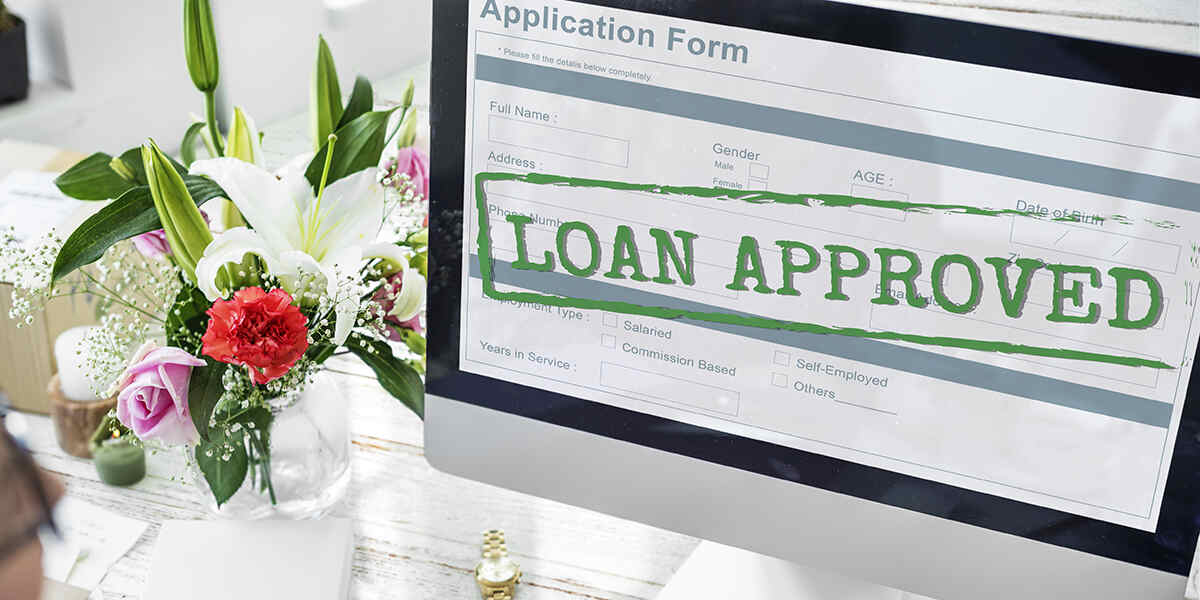Are you considering purchasing a home in Texas? FHA loans could be a solid option for you. These government-backed loans assist individuals with lower incomes or less-than-perfect credit in acquiring homes. If you’re a first-time buyer or have encountered financial hurdles, you may be eligible.
In this article, we will clarify who qualifies for an FHA loan in Texas and outline the requirements, helping you move closer to homeownership.
Understanding FHA Loans
FHA loans cater to borrowers with less-than-perfect credit scores, making them more accessible than conventional loans. They have a 3.5% down payment requirement for borrowers with credit scores of at least 580, while those with scores under 580 face a higher down payment. These loans enable down payments sourced from savings, assistance grants, or gifts, helping Texas homebuyers achieve their goal of homeownership.
FHA eligibility looks at consistent income and a debt-to-income ratio below 57%, also offering options for individuals who have experienced bankruptcy or foreclosure. Furthermore, FHA loans typically feature lower interest rates and require mortgage insurance, providing additional assurance for lenders. In Texas, FHA loan limits differ by county, affecting the financing amount available to borrowers for their property. For homebuyers interested in homes needing repairs, FHA loans offer renovation options as well.
This makes them an attractive option for first-time buyers looking for support through different assistance programs in the state.
Qualifying for an FHA Loan in Texas
Texas FHA Loan Requirements
To qualify for an FHA loan in Texas, a borrower typically needs a credit score of at least 580 to secure a 3.5% down payment. Some FHA lenders may consider scores as low as 500, but that would require a larger down payment of 10%. The maximum FHA loan limit varies by county, with most areas allowing up to $498,257 for single-family homes, while more expensive counties like Dallas may have even higher limits.
First-time homebuyers applying for an FHA loan can benefit from various programs, offering down payments as low as 3.5% or even no money down through zero-down loans for eligible properties. Borrowers may also use savings, gifts from family or friends, or assistance grants to cover down payment costs. For those with student loans or a history of bankruptcy or foreclosure, FHA loans provide a path back to homeownership, as long as they meet the steady income and mortgage insurance requirements, including debt-to-income ratio limits of 57%.
Income and Debt Requirements
To qualify for an FHA loan in Texas, individuals or households must show steady income, but there’s no specific maximum income level. FHA lenders look at credit scores, which must be at least 580 for a 3.5% down payment. If applicants have a higher debt-to-income ratio, capped at 57%, their chances of securing the loan decrease. For instance, a borrower earning $3,000 monthly should not exceed $1,500 in monthly debt payments.
Acceptable income sources include wages, savings, and funds from assistance programs. Even gifts from family or friends can be used for the down payment. Borrowers must also consider mortgage insurance on FHA loans, which they need to pay monthly, adding to their overall debt obligations. The FHA loan limits per county may differ, affecting how much mortgage one can take.
Additionally, past bankruptcy or foreclosure can impact eligibility, but individuals can often qualify after two years if they demonstrate improved financial habits. First-time homebuyers may find FHA loans a beneficial option due to these flexible criteria.
Mortgage Insurance Requirements
Borrowers applying for an FHA loan in Texas must pay two types of mortgage insurance.
First, they need to cover an upfront mortgage insurance premium (UFMIP), which amounts to 1.75% of the loan total.
For example, on a $200,000 loan, this adds $3,500 to the mortgage amount.
Additionally, a monthly mortgage insurance premium (MIP) is required, usually around 1% of the loan size. This monthly payment affects overall housing costs, raising the monthly payment and making it important for borrowers to include it in their budgets. For homebuyers who put down at least 10%, there is the option to reduce the MIP payments to 11 years instead of for the loan’s life. FHA loans also offer opportunities for first-time homebuyers and those who may have had bankruptcy or foreclosure in their history to qualify. Employing savings, down payment assistance programs, or even zero-down loans can help buyers cover costs associated with the home, including necessary repairs and renovations.
The FHA loan limit varies by county, affecting how much assistance a borrower may receive based on their chosen property.
Additional FHA Loan Requirements
To meet the additional FHA loan requirements, borrowers must provide specific documentation beyond standard income verification, including tax returns, pay stubs, and proof of a valid social security number. These documents confirm steady income and the ability to repay the mortgage loan.
Additional FHA requirements can lengthen the approval process for homebuyers, as lenders need to review various aspects, such as the property’s eligibility and the borrower’s financial history, including defaults, bankruptcy, and foreclosure records. Unique eligibility criteria may change based on a borrower’s credit score; for instance, those with scores below 580 might face larger down payments and stricter scrutiny compared to borrowers with credit scores above 580 who qualify for a 3.5% down payment. This can affect the overall interest rate and mortgage limits applicable to the FHA loan.
Property types can also influence approval, especially for renovations or improvements, with specific guidelines set by FHA lenders.
Additionally, assistance programs may offer support for eligible borrowers needing help with the down payment.
Other FHA Programs
FHA loans in Texas offer various options to help homebuyers, especially those buying for the first time, access affordable solutions. The FHA streamline refinance allows homeowners to reduce their interest rate with minimal paperwork if they have a history of on-time payments. The FHA 203(k) loan facilitates the purchase of a property along with funding for repairs, simplifying the process for those looking to renovate.
Additional choices include the energy-efficient mortgage, which finances green upgrades, and reverse mortgages for older homeowners to access home equity. These programs provide flexibility and specialized support compared to standard FHA loans.
Typically, borrowers need a credit score of at least 580, a stable income, and a 3.5% down payment to qualify. Debt-to-income ratios should be below 57%, and individuals with recent bankruptcies or foreclosures can seek eligibility after a waiting period. Assistance programs, such as grants for down payment aid, also help income-qualified applicants. These FHA programs aim to make homeownership more accessible while ensuring mortgage insurance is in place to protect lenders against defaults.
Next Steps for Getting an FHA Loan
To start the FHA loan application process, borrowers need to gather the necessary documents, including proof of income, tax returns, and details about existing student loans and debts. Looking for an FHA lender can be done by checking a list of approved lenders provided by HUD. Homebuyers should search for lenders in Texas who offer FHA loans, comparing interest rates and terms.
To ensure they meet qualifying criteria, borrowers must check their credit scores, maintain a debt-to-income ratio below 57%, and be prepared to make a down payment of at least 3.5%. They can also explore assistance programs if funds for the down payment are limited. For those with less credit history, reaching out to FHA lenders directly can help clarify eligibility options.
Additionally, borrowers who have faced bankruptcy or foreclosure should be aware that these factors might affect their ability to qualify and should plan for potential repairs to the property if required. Knowing the FHA loan limits in their county will help determine the mortgage loan amount they can seek.
Applying for an FHA Loan in Texas
When applying for an FHA loan in Texas, potential homebuyers need to gather personal documents like tax returns, W-2 forms, and proof of savings. They also must show their steady income and credit scores, which should be at least 580 for a 3.5% down payment. The application process for FHA loans differs from conventional loans mainly due to the need for mortgage insurance and the possibility of a higher debt-to-income ratio of up to 57%.
Borrowers treating their property as a primary residence must meet specific FHA loan limits based on their county, which change yearly. FHA-approved lenders assess a borrower’s eligibility to qualify for the loan based on their financial profile, which includes handling any defaults, foreclosure history, and bankruptcy. These lenders closely examine whether the borrower can manage repairs and renovations if necessary, ensuring the applicants understand all available assistance programs and zero-down loans for which they might be able to apply.
Texas FHA Loan Limits
In Texas, the current FHA loan limit for most counties is $498,257 for a single-family home, with areas like Dallas County reaching up to $563,500 and Travis County even higher at $571,550. These limits may vary based on local property values. Compared to national FHA loan limits, Texas’s figures may offer different options or restrict specific homebuyers, especially first-time buyers with average credit scores.
FHA loan limits in Texas enhance housing affordability by allowing borrowers to secure a mortgage loan with a down payment as low as 3.5%. This is beneficial for individuals with steady incomes, as they can qualify for loans even with lower credit scores or prior bankruptcy.
Additionally, assistance programs are available to support down payments, and some areas offer zero-down loans. The limits also affect eligibility for renovations and repairs, making it easier for homebuyers to purchase properties that require work while adhering to FHA mortgage insurance guidelines. Thus, these loan limits significantly impact the homebuying experience in Texas.
FHA Streamline Refinance in Texas
To qualify for an FHA Streamline Refinance in Texas, borrowers usually need a steady income and a credit score of at least 580, but those with lower scores may still find opportunities. The home must comply with FHA loan limits based on its county and serve as the borrower’s primary residence. Unlike conventional loans, the streamline process involves less paperwork and does not require income verification or credit checks.
This simplifies the process for homeowners, particularly those who may have experienced bankruptcy or foreclosure, enabling them to secure lower interest rates. By refinancing, homeowners can significantly lower monthly mortgage payments without large out-of-pocket expenses. One major benefit is the chance to eliminate or reduce mortgage insurance, easing financial burdens. Moreover, homeowners can tap into assistance programs or savings from reduced rates to manage repairs or renovations.
FAQs About Texas FHA Loans
Credit Score Requirement for FHA Loan in Texas
To qualify for an FHA loan in Texas, borrowers generally need a minimum credit score of 580, which allows them to secure a 3.5% down payment. In some cases, a credit score as low as 500 is acceptable, but this requires a larger down payment of 10%. A borrower’s credit score directly influences their interest rate and eligibility for the loan.
For example, individuals with higher credit scores typically enjoy better interest rates, making their mortgages more affordable. Several assistance programs exist for those with lower credit scores aiming for an FHA loan. These programs may offer grants or support for down payments, making homeownership more accessible.
Additionally, options like zero-down loans are available in certain areas for eligible borrowers. Income stability and a favorable debt-to-income ratio are also considered, especially for applicants dealing with past issues like bankruptcy or foreclosure. Knowing the FHA loan limits specific to their county helps homebuyers gauge property options within their financial reach.
Maximum FHA Loan Amount in Texas
The maximum FHA loan amount in Texas varies based on factors such as county and local property values. Each county has different limits, meaning the FHA loan limit could range from around $472,030 in some areas to over $563,500 in places like Dallas County. For homebuyers, these limits are significant as they determine how much they can afford to borrow when purchasing a home.
An increase in the FHA loan limit may allow first-time homebuyers to qualify for a mortgage loan, particularly with lower credit scores and a 3.5% down payment. This can create opportunities for borrowers with steady income who might also explore assistance programs for down payments.
Additionally, individuals who have experienced bankruptcy or foreclosure can benefit from these higher limits, enabling them to buy a property that suits their needs. Many federal assistance grants offer zero-down loans that can aid homebuyers who may have limited savings. Therefore, understanding FHA loan limits is important for anyone looking to secure a mortgage in Texas.
Down Payment for First-Time Homebuyers in Texas
First-time homebuyers in Texas have various options to assist with their down payment. FHA loans are available with a down payment as low as 3.5% for those with credit scores of 580 or higher. Borrowers with lower scores might need to put down 10% but can still qualify under certain conditions. Texas also offers assistance programs that provide grants or funds to help cover down payment costs. Some homebuyers may even qualify for zero-down loans to help purchase a property.
Unlike repeat buyers, first-time homebuyers benefit from more flexible terms and special assistance for their down payments. Additional resources, like local grants or programs aimed at supporting designated income levels, ensure that steady income is not a barrier.
Each county in Texas has specific mortgage limits, so homebuyers should research local requirements and consult an FHA lender to understand their eligibility based on credit scores, debt-to-income ratio, and any defaults due to bankruptcy or foreclosure history.
First-Time Homebuyer Program in Texas
The First-Time Homebuyer Program in Texas offers several advantages to eligible buyers, including reduced mortgage insurance rates and down payments starting at 3.5%. FHA loans attract first-time homebuyers because these benefits make homeownership more attainable. To be eligible, borrowers typically need a minimum credit score of 580, a debt-to-income ratio below 57%, and reliable income.
Properties must serve as primary residences, and applicants should adhere to specific income limits that differ by county. Assistance programs are also available, providing grants for down payments or covering closing costs. Some buyers may even qualify for zero-down loans in designated areas. By exploring these resources and collaborating with an FHA lender, first-time homebuyers can effectively assess options to secure a mortgage loan that aligns with their circumstances, including those who have faced difficulties such as bankruptcy or foreclosure.
FAQ
What are the minimum credit score requirements to qualify for an FHA loan in Texas?
The minimum credit score for an FHA loan in Texas is typically 580 for a 3.5% down payment. If your score is between 500-579, you’ll need a 10% down payment. Always check with lenders for specific requirements.
Is there an income limit to qualify for an FHA loan in Texas?
No, there is no specific income limit for FHA loans in Texas. However, borrowers must meet debt-to-income ratios, typically around 43%. For example, if you earn $60,000 annually, ensure your monthly debts don’t exceed $2,150 to qualify comfortably.
Do I need to be a first-time homebuyer to qualify for an FHA loan in Texas?
No, you do not need to be a first-time homebuyer to qualify for an FHA loan in Texas. Both first-time and repeat buyers can apply. For example, if you’ve owned a home before, you can still use an FHA loan for your next purchase.
What is the required down payment for an FHA loan in Texas?
The required down payment for an FHA loan in Texas is typically 3.5% of the home’s purchase price. For example, on a $200,000 home, the down payment would be $7,000. Consider saving this amount for a smooth loan process.
Are there specific property requirements to qualify for an FHA loan in Texas?
Yes, properties must meet FHA minimum property standards, including being safe, sound, and secure. Examples include working utilities, no major structural issues, and adequate heating. A professional appraisal is required to ensure compliance.
Discover who qualifies for FHA loans in Texas with Champions Mortgage. Our experts will guide you through the eligibility criteria, helping you understand if you meet the requirements. Contact us today to learn more and start your journey toward homeownership.







